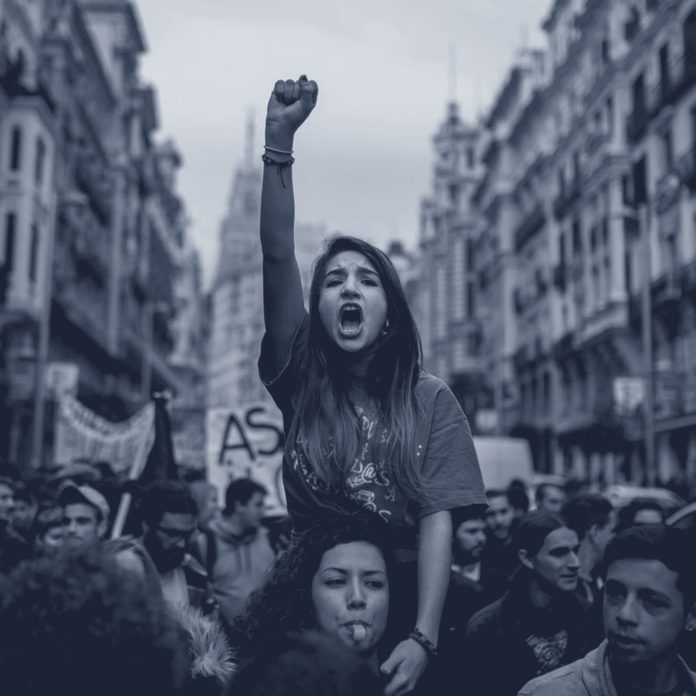
The Revolution will not be [accurately] televised!
If you turned on the news or picked up a newspaper in the past couple of weeks, you would have been fed a certain story in terms of what was going down with the University strikes and marches that quickly spread across South Africa.
Phrases like ‘out-of-control’ students and descriptors such as ‘animals’ or ‘hooligans’ were used to fire up emotions and when you add photographic and video evidence, it can quickly be made to seem like that is the case.
For the first two days of the #FeesMustFall events I was trapped in my house in Southfield with no car and so I just had to follow what was happening online and through the eyes and words of my friends.
But on the third day I was able to make my way up to the University of Cape Town to see what was happening first hand.
THE MEDIA TELLS A STORY
Unless, you’ve experienced the disparity between a real story and a reported one, it may be hard to believe this. I remember a family friend of ours years ago was involved in a fireworks accident and I heard the whole story of how things went down from his brother who was there. Then I read the newspaper account of what had happened and it literally felt like two completely different events were being spoken about. I have seen it since then in events I have been involved in.
And I saw it both at UCT and at UWC where I was fortunate to go with a small group of pastors to be a presence when things were getting a little volatile there. I had close trustworthy friends at the Union Buildings when the disruption and violence flared up there as well. I then saw some newspaper headlines and was at a friend’s house when the news came on. A one-sided biased story was presented that only focused on the smallest aspect of what had been caused by a few individuals and didn’t give nearly enough attention to the majority of peaceful students who were bravely fighting for a cause they believed in.
TWITTER GAVE A MORE BALANCED VIEW
Before I was able to get more personally involved I received a lot of my information via Social Media and for the first time I witnessed Twitter being used as what seemed to me like the most effective news sharing tool.
One of the big distinctions is that you get immediate news from a much wider source of people. So not all the stories always line up. But if you are following a diverse enough group of people and checking a variety of different sources and stories, then it is easier to get a more likely and more honest version of events.
Was this the first time Social Media affected or helped speed up and enhance a revolution? Absolutely not – in fact the first International observance of this was likely the 2011 Uprisings in Egypt that spread like wildfire over social media. But it was the first time I had witnessed it happening so effectively at home.
And it was an incredible sight to watch.
LET TWITTER HOOK YOU UP
Beyond just receiving a more coherent and honest story of events, it was amazing to watch how the students utilised Twitter to supply the troops so to speak. Anything from donated food and airtime to the offer of legal and psychological assistance to those clashing with police, Twitter was used effectively to make sure that those with the resources could transfer them to those in need. Information, meeting times, connecting stories from University to University, simply adding a hashtag like #FeesMustFall and then more specifically #UWCShutdown was enough to help get everyone on a similar page.
Did Twitter start the Revolution? No, but it helped report it. Did it bring the people to the streets? No, but it kept them there and made sure that they were well resourced and looked after once they were there. And it sent out a message to the state-controlled media that “You will not control the narrative on these events.”
I look forward to seeing how this new social media savvy generation takes up this revolution both on and off the streets.
